November 18, 2015 •
California’s FPPC Proposes Regulations Affecting Lobbyist Reporting
The Fair Political Practices Commission (FPPC) has proposed rules amending reporting requirements for “other payments to influence legislative or administrative action”, as provided in California Government Code section 86116. The proposed regulations require such payments to be itemized on periodic […]
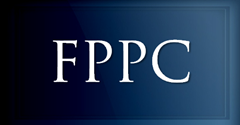 The Fair Political Practices Commission (FPPC) has proposed rules amending reporting requirements for “other payments to influence legislative or administrative action”, as provided in California Government Code section 86116. The proposed regulations require such payments to be itemized on periodic disclosure reports.
The Fair Political Practices Commission (FPPC) has proposed rules amending reporting requirements for “other payments to influence legislative or administrative action”, as provided in California Government Code section 86116. The proposed regulations require such payments to be itemized on periodic disclosure reports.
According to the FPPC, these payments encompass a range of expenditures and lump sum reporting does not provide the type of transparency imagined by the drafters of the statute. The amended regulations affect lobbyist employers and persons spending $5,000 or more to influence legislative or administrative action.
The FPPC will hold an interested persons meeting on December 3, 2015 at 10 a.m. to solicit public comment regarding the proposed rules. The rules will be considered for adoption at the FPPC’s January 21, 2016, meeting.
November 17, 2015 •
Orange County, California Considering Creation of Ethics Commission
The Orange County Board of Supervisors approved a ballot measure which would create an ethics commission for the county. A newly created ethics commission would oversee the enforcement of the county’s campaign finance ordinance. Voters will have the opportunity to […]
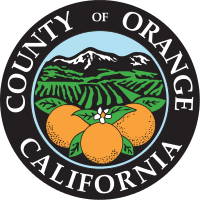 The Orange County Board of Supervisors approved a ballot measure which would create an ethics commission for the county. A newly created ethics commission would oversee the enforcement of the county’s campaign finance ordinance.
The Orange County Board of Supervisors approved a ballot measure which would create an ethics commission for the county. A newly created ethics commission would oversee the enforcement of the county’s campaign finance ordinance.
Voters will have the opportunity to approve the measure on June 7, 2016, the date of the presidential primary election.
November 16, 2015 •
State and Federal Communications Has Three Staff Members Receive AGRP Professional Lobbying Certificate
State and Federal Communications is pleased to announce the following individuals received their Professional Lobbying Certificate at the AGRP Annual Meeting. Michael Beckett, Esq., George Ticoras, Esq., and John Cozine, Esq. received their certificates after completing the year-long Lobbying Certificate […]
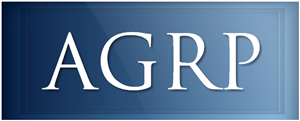 State and Federal Communications is pleased to announce the following individuals received their Professional Lobbying Certificate at the AGRP Annual Meeting.
State and Federal Communications is pleased to announce the following individuals received their Professional Lobbying Certificate at the AGRP Annual Meeting.
Michael Beckett, Esq., George Ticoras, Esq., and John Cozine, Esq. received their certificates after completing the year-long Lobbying Certificate program. Since 2008, 11 staff from the company have completed the program, which is the only certificate program for the government relations professional that covers the wide range of activities that comprise modern government relations.
Through 14 courses over a year, participants have the opportunity to get the baseline knowledge of the numerous topics that need to be known by lobbyists and grassroots practitioners. Within those courses, five are required that cover Ethics of Advocacy, LDA & Compliance, PAC & Campaign Fundraising, Congressional Rules & Procedure and Communications & Media.
The Association of Government Relations Professionals (AGRP) is the national professional society dedicated exclusively to government relations, public policy and lobbying. AGRP’s mission is to enhance the development of the profession, competence, and high ethical standards for advocates in the public policy arena; and to collectively address the challenges affecting the First Amendment right to “petition the Government for redress of grievances.” For more information, visit http://grprofessionals.org.
November 4, 2015 •
New Registration Requirements for Lobbyists in San Francisco
Proposition C, a measure requiring registration fees and monthly reports from expenditure lobbyists, was approved by voters in San Francisco. The measure creates a new category of lobbyists, termed expenditure lobbyists, defined as organizations who employ lobbyists to influence city […]
 Proposition C, a measure requiring registration fees and monthly reports from expenditure lobbyists, was approved by voters in San Francisco. The measure creates a new category of lobbyists, termed expenditure lobbyists, defined as organizations who employ lobbyists to influence city officials.
Proposition C, a measure requiring registration fees and monthly reports from expenditure lobbyists, was approved by voters in San Francisco. The measure creates a new category of lobbyists, termed expenditure lobbyists, defined as organizations who employ lobbyists to influence city officials.
The measure imposes a registration threshold of $2,500 or more in a calendar month spent soliciting, requesting, or urging other persons to communicate directly with a city official. Expenditure lobbyists must pay a $500 fee to register with the city.
The measure takes effect February 1, 2016.
October 9, 2015 •
FPPC Considers Proposals Concerning Enforcement Complaints
On November 19, the California Fair Political Practices Commission (FPPC) will consider a proposed regulation concerning the procedures for notification of enforcement complaints. The proposals to be heard at the public hearing will include a revised policy for media and […]
 On November 19, the California Fair Political Practices Commission (FPPC) will consider a proposed regulation concerning the procedures for notification of enforcement complaints. The proposals to be heard at the public hearing will include a revised policy for media and public record inquiries. The FPPC is accepting written comments submitted to the Commission offices no later than 5:00 p.m. on November 17, 2015. The notice for the proposed regulatory changes can be accessed here.
On November 19, the California Fair Political Practices Commission (FPPC) will consider a proposed regulation concerning the procedures for notification of enforcement complaints. The proposals to be heard at the public hearing will include a revised policy for media and public record inquiries. The FPPC is accepting written comments submitted to the Commission offices no later than 5:00 p.m. on November 17, 2015. The notice for the proposed regulatory changes can be accessed here.
October 6, 2015 •
New Lobbying Law Takes Effect in San Joaquin County, California
On September 17, 2015, a new lobbying law took effect in San Joaquin County, California. Ordinance 4468, passed by the Board of Supervisors in August, requires lobbyists, lobbying firms, and lobbyist’s employers to register when lobbying county officials. Registration with […]
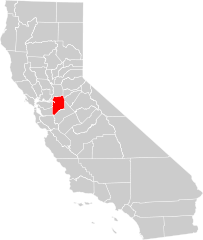 On September 17, 2015, a new lobbying law took effect in San Joaquin County, California. Ordinance 4468, passed by the Board of Supervisors in August, requires lobbyists, lobbying firms, and lobbyist’s employers to register when lobbying county officials. Registration with the clerk of the board is required 10 days after becoming engaged as a lobbyist. There is an initial registration fee of $75. The annual registration renewal fee is $50.
On September 17, 2015, a new lobbying law took effect in San Joaquin County, California. Ordinance 4468, passed by the Board of Supervisors in August, requires lobbyists, lobbying firms, and lobbyist’s employers to register when lobbying county officials. Registration with the clerk of the board is required 10 days after becoming engaged as a lobbyist. There is an initial registration fee of $75. The annual registration renewal fee is $50.
The new county ordinance defines lobbying activities as oral, written, or electronic communication made directly or indirectly to a county official, for the purpose of persuading or influencing official actions or decisions. An individual is required to register when he or she is employed, contracts, or otherwise receives compensation of $500 or more in any calendar month to communicate directly or through agents, employees, or subcontractors with any county official for the purpose of influencing official action. However, a substantial or regular portion of the activities for which the person receives such compensation must be for the purpose of influencing official action. Influencing official action includes promoting, supporting, influencing, modifying, opposing, or delaying actions of any county official, including soliciting county contracts or funds. Influence can include providing county officials with statistics, studies, or analyses.
Registration is not required by agents and employees of tax-exempt organizations, elected and appointed public officials and employees, news organizations, and advocates or attorneys in certain circumstances. Amendments to a registration form must be completed and filed by the lobbyist with the clerk of the board within ten days of any change.
Penalties for failing to register range from a written warning to daily fines staggered in the amounts of $25, $50, and $75, up to a maximum penalty of $500. Penalties also include disqualification from county contracts if any lobbyist, lobbying firm, employer, or other person or entity acting on behalf of the person or entity seeking the contract fails to comply with the county’s lobbying ordinance.
September 25, 2015 •
Proposed Constitutional Amendment Increasing Campaign Finance Disclosure to Appear on California’s 2016 Ballot
A proposed constitutional amendment has been submitted to appear on the November 2016 ballot. This measure, titled The Voters’ Right to Know Act, would increase campaign finance disclosure requirements and eliminate gifts to public officials from certain entities. The act […]
 A proposed constitutional amendment has been submitted to appear on the November 2016 ballot.
A proposed constitutional amendment has been submitted to appear on the November 2016 ballot.
This measure, titled The Voters’ Right to Know Act, would increase campaign finance disclosure requirements and eliminate gifts to public officials from certain entities.
The act is designed to remove the “dark money” loopholes of nonprofit contributors by requiring anyone contributing $10,000 or more to be identified if that money winds up supporting a political effort. It also calls for updating and improving the electronic reporting system, clearer disclosure of contributors on television ads, and stronger penalties for violators.
The act also would ban gifts to public officials from lobbyists and lobbyist employers. The monetary limit on gifts to public officials from individuals would be lowered to $200 from the current amount of $460.
Backers of this proposition hope it will lead to greater transparency and encourage greater engagement from all voters.
September 25, 2015 •
California’s FPPC Opposes Bill Reducing Disclosure Requirements
The Fair Political Practices Commission (FPPC) has come out in opposition to Assembly Bill 1544. This bill, currently awaiting Gov. Jerry Brown’s signature or veto, would change disclosure requirements for certain types of behested payments. Currently, elected officials must disclose […]
 The Fair Political Practices Commission (FPPC) has come out in opposition to Assembly Bill 1544. This bill, currently awaiting Gov. Jerry Brown’s signature or veto, would change disclosure requirements for certain types of behested payments.
The Fair Political Practices Commission (FPPC) has come out in opposition to Assembly Bill 1544. This bill, currently awaiting Gov. Jerry Brown’s signature or veto, would change disclosure requirements for certain types of behested payments.
Currently, elected officials must disclose if an entity provides funding to a charity or government program based on the official’s request, including any funding coming from government agencies. Should the governor sign AB 1544, elected officials would no longer have to report payments provided by government agencies to nonprofit or for-profit groups when the purpose of the funding is primarily for a governmental or legislative purpose.
Assemblyman Ken Cooley, the bill’s sponsor, said disclosure should not be required when payments are sought from government agencies, as it is part of a legislator’s job to advocate for such grants and opportunities on behalf of his or her district.
The FPPC opposes the bill because eliminating these types of behested payments from disclosure requirements could result in the public not being informed of millions of dollars in behested payments to nonprofit and for-profit groups.
September 25, 2015 •
Los Angeles Councilman Looking to Ban Businesses, Union, and Group Contributions
City Councilman David Ryu is working to keep his campaign promise of shaking up the status quo at city hall. He has sent a letter to the city Ethics Commission requesting they look into the possibility of banning contributions to […]
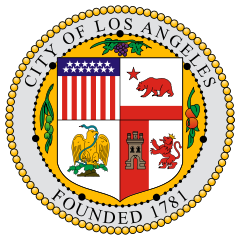 City Councilman David Ryu is working to keep his campaign promise of shaking up the status quo at city hall.
City Councilman David Ryu is working to keep his campaign promise of shaking up the status quo at city hall.
He has sent a letter to the city Ethics Commission requesting they look into the possibility of banning contributions to candidates by businesses, labor unions, and other groups.
He had planned to introduce legislation to accomplish this change; however, when no other council member would sign onto the legislation, Ryu turned to the Ethics Commission, asking them to explore ways to achieve such a ban.
While reform groups support such a ban, critics of the proposal fear it will lead to legal challenges and drive more money to independent expenditure groups.
September 18, 2015 •
City of Sacramento, CA Passes Ethics Package
On September 15, the Sacramento City Council voted to create an ethics commission with a new ethics code. The city clerk and city attorney were directed by the Council’s resolution to draft an Ethics Code for approval by the City […]
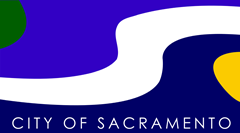 On September 15, the Sacramento City Council voted to create an ethics commission with a new ethics code. The city clerk and city attorney were directed by the Council’s resolution to draft an Ethics Code for approval by the City Council at a later date.
On September 15, the Sacramento City Council voted to create an ethics commission with a new ethics code. The city clerk and city attorney were directed by the Council’s resolution to draft an Ethics Code for approval by the City Council at a later date.
An office of compliance will be created for city employee training of local and state ethics laws. Additionally, a redistricting commission is established to draw new boundaries for City Council districts. The city clerk and city attorney are to create language and appropriate action for the Council to act on placing a measure for redistricting on the November 2018 ballot. The proposals were approved by an 8-0 vote.
September 17, 2015 •
San Diego, CA Raises Lobbyist Fees
On September 15, the San Diego, California City Council voted unanimously to raise the registration fees for lobbyists. The new ordinance, which was approved by the Budget Committee in July, increases the annual registration from $40 to $150. Annual registration […]
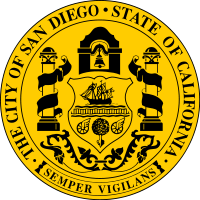 On September 15, the San Diego, California City Council voted unanimously to raise the registration fees for lobbyists. The new ordinance, which was approved by the Budget Committee in July, increases the annual registration from $40 to $150. Annual registration fees paid by clients who hire lobbyists also increases from $15 to $30. These increases are the first since the enactment of lobbyist registration fees in 2008. The changes take effect January 1, 2016.
On September 15, the San Diego, California City Council voted unanimously to raise the registration fees for lobbyists. The new ordinance, which was approved by the Budget Committee in July, increases the annual registration from $40 to $150. Annual registration fees paid by clients who hire lobbyists also increases from $15 to $30. These increases are the first since the enactment of lobbyist registration fees in 2008. The changes take effect January 1, 2016.
September 14, 2015 •
California Legislature Adjourns Regular Session
On September 11, the California State Legislature adjourned its regular session sine die. Before adjourning, the legislature sent several ethics bills to the Gov. Jerry Brown, including Assembly Bill 10, which contains provisions affecting elected officials’ disclosure of financial investments […]
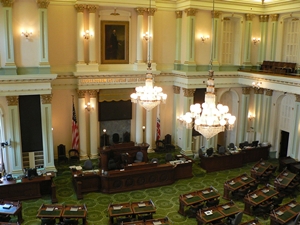 On September 11, the California State Legislature adjourned its regular session sine die.
On September 11, the California State Legislature adjourned its regular session sine die.
Before adjourning, the legislature sent several ethics bills to the Gov. Jerry Brown, including Assembly Bill 10, which contains provisions affecting elected officials’ disclosure of financial investments and conflicts of interest. Another bill, Assembly Bill 990, will require political advertisements to carry larger statements clearly stating information about who is paying for the advertisement. Brown has until October 11 to sign or veto legislation. The governor does not have a pocket veto.
A special legislative session, which began on June 26, 2015 and has been running concurrently with the regular session, remains in session.
Photo of the California State Assembly chamber by David.Monniaux on Wikimedia Commons.
September 11, 2015 •
California Bill Requires New Disclaimer Rules for Political Ads
The Legislature has passed a bill requiring new political advertising standards. Sponsored by Assemblywoman Susan Bonilla, Assembly Bill 990 will require political advertisements to carry larger statements clearly stating information about who is paying for the advertisement. Bonilla introduced the […]
 The Legislature has passed a bill requiring new political advertising standards.
The Legislature has passed a bill requiring new political advertising standards.
Sponsored by Assemblywoman Susan Bonilla, Assembly Bill 990 will require political advertisements to carry larger statements clearly stating information about who is paying for the advertisement.
Bonilla introduced the legislation to ensure voters will be able to easily identify the sponsors behind any political advertising.
September 11, 2015 •
Bill Changes Disclosure Thresholds for California Public Officials
The State Assembly has passed Assembly Bill 10 and sent it to the governor. This bill contains provisions affecting elected officials’ disclosure of financial investments and conflicts of interest. It requires public officials to provide more detailed information about their […]
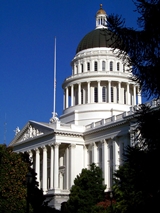 The State Assembly has passed Assembly Bill 10 and sent it to the governor.
The State Assembly has passed Assembly Bill 10 and sent it to the governor.
This bill contains provisions affecting elected officials’ disclosure of financial investments and conflicts of interest. It requires public officials to provide more detailed information about their business dealings and investments.
It also raises the thresholds used to decide if an official’s investments create a conflict of interest.
AB 10 is linked to Senate Bill 21, which also passed and has been sent to the governor. In order for these bills to become law, both must be signed.
Photo of the California State Capitol by Nikopoley on Wikimedia Commons.
State and Federal Communications, Inc. provides research and consulting services for government relations professionals on lobbying laws, procurement lobbying laws, political contribution laws in the United States and Canada. Learn more by visiting stateandfed.com.

